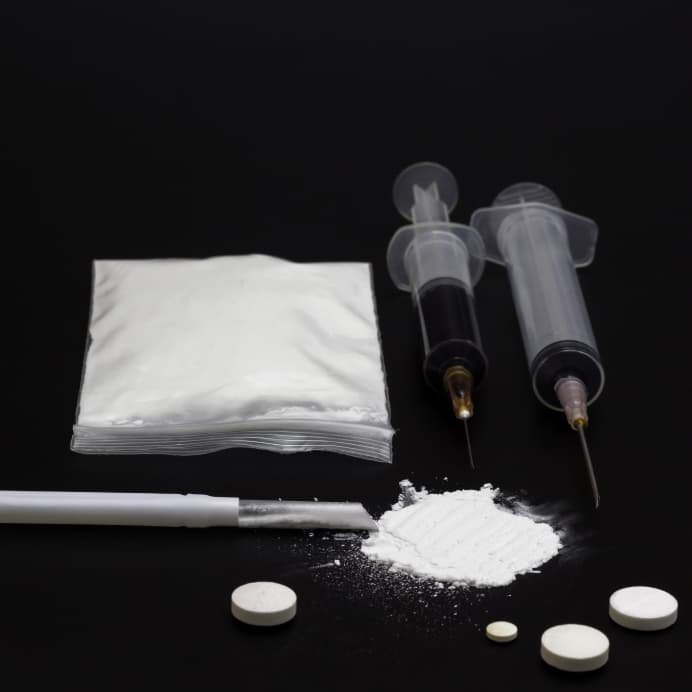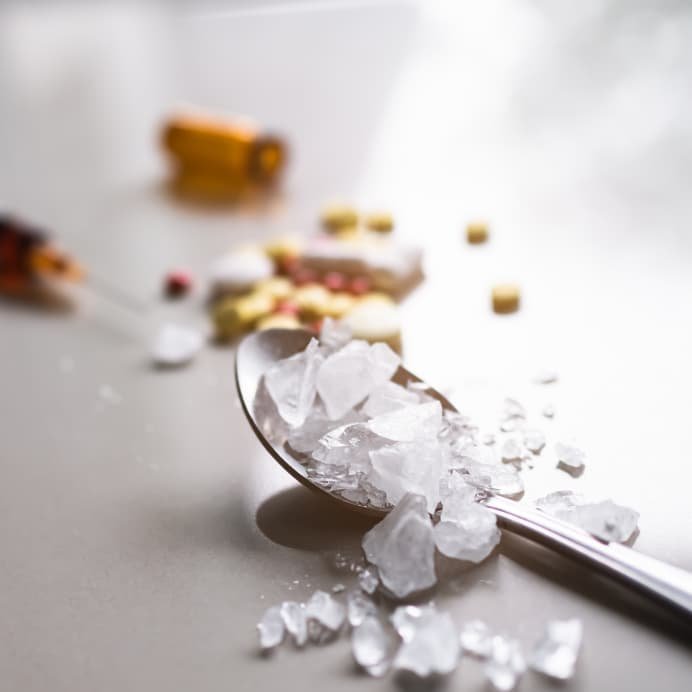Meth Addiction Treatment
Meth Addiction Treatment
Understanding Methamphetamine Addiction
Methamphetamine addiction, commonly known as meth addiction, is a severe and debilitating condition characterized by the compulsive use and dependency on methamphetamine—a potent and highly addictive stimulant drug.
Methamphetamine affects the central nervous system, inducing intense euphoria, heightened energy, and increased alertness. The addiction often stems from the drug’s powerful impact on the brain’s reward system, triggering a surge of dopamine, a neurotransmitter associated with pleasure.
In advanced stages of methamphetamine addiction, consequences can be dire. Thus, it is imperative for individuals grappling with meth addiction to promptly seek professional help and support from healthcare providers.
Detoxification typically serves as the initial phase in any Meth abuse treatment program, followed by behavioral therapies, counseling, and support groups to address the psychological aspects of addiction and develop coping mechanisms for cravings and triggers.


Warning Signs of Meth Addiction
Meth addiction manifests observable signs that underscore its profound impact on individuals. Recognizing and comprehending these signs is vital for acknowledging the destructive nature of methamphetamine addiction.
Drastic Changes in Physical Appearance: Keep an eye out for rapid weight loss, dilated pupils, a pale complexion, and skin sores or acne-like marks.
Behavioral and Emotional Changes: Take note of sudden mood swings, irritability, aggression, paranoia, and excessive anxiety or nervousness. Meth addicts may exhibit erratic behavior, engage in risky activities, and struggle with focus or stillness.
Neglect of Personal Hygiene: Meth addiction often leads to a disregard for personal grooming habits, resulting in an unkempt appearance, bad breath, and dental issues known as “meth mouth.”
Sleep Disturbances: Methamphetamine disrupts normal sleep patterns, causing insomnia or prolonged wakefulness. Signs include excessive fatigue, restlessness, and an irregular sleep routine.
Social Withdrawal and Relationship Issues: Meth addicts may isolate themselves, lose interest in previously enjoyed activities, and strain relationships due to drug use.
Physical Health Decline: Look for signs of deteriorating physical health, such as frequent illnesses, infections, and a general decline in overall well-being.
Health Complications with Meth Addiction
Meth addiction poses severe risks, encompassing physical, psychological, and social consequences for those ensnared by its effects.
Cardiovascular Problems: Methamphetamine use strains the cardiovascular system, heightening the risk of heart attacks, irregular heart rhythms, high blood pressure, and heart failure.
Respiratory Issues: Inhaling methamphetamine smoke can damage the lungs, leading to a chronic cough, wheezing, shortness of breath, and an increased susceptibility to respiratory infections.
Psychiatric Disorders: Prolonged meth addiction can exacerbate or induce psychiatric conditions, including anxiety disorders, depression, paranoia, hallucinations, and psychosis.
Weakened Immune System: Chronic methamphetamine use weakens the immune system, increasing susceptibility to infections and illnesses, resulting in frequent colds, flu-like symptoms, and other diseases.
Cognitive Impairment: Methamphetamine abuse results in long-term cognitive impairments, affecting memory, attention, decision-making, and problem-solving abilities. Users may struggle with concentration, learning, and overall cognitive function.
Nutritional Deficiencies: Methamphetamine often suppresses appetite, leading to inadequate nutrition and weight loss. Chronic malnourishment weakens the immune system, impairs organ function, and contributes to physical weakness.

Why Choose 911 Detox recovery for Alcohol Rehabilitation?
Struggling with alcohol addiction can feel isolating and overwhelming, but you don’t have to go through it alone. At 911 Detox Center, we offer a transformative journey towards lasting sobriety that goes beyond just detox.

Detox
Our journey begins with a safe and comfortable, medically supervised detox. We understand the challenges of withdrawal, so we’ll be by your side, managing symptoms and addressing underlying triggers.
Residential
Immerse yourself in a supportive and structured program designed for healing and self-discovery. Through individual therapy sessions, you’ll delve deeper into your story, gaining insights and tools for lasting change.
Recovery Maintenance
Our commitment extends beyond treatment. We offer ongoing support groups, connecting you with others who understand your struggles and celebrate your successes.
Seeking help for effective meth recovery is crucial. Contact our specialized Meth Rehab Los Angeles center at (409) 9000 911 for professional meth addiction counseling, support, care, and a pathway to recovery. Don’t face this battle alone; we’re here to help.

